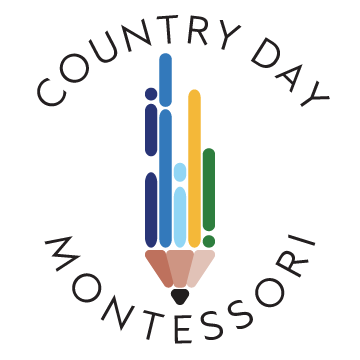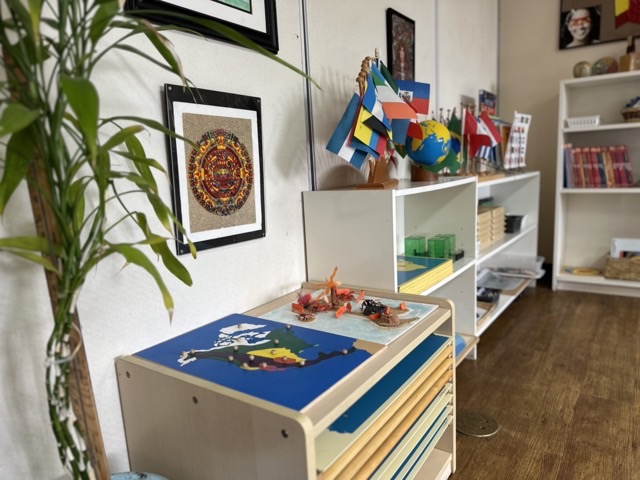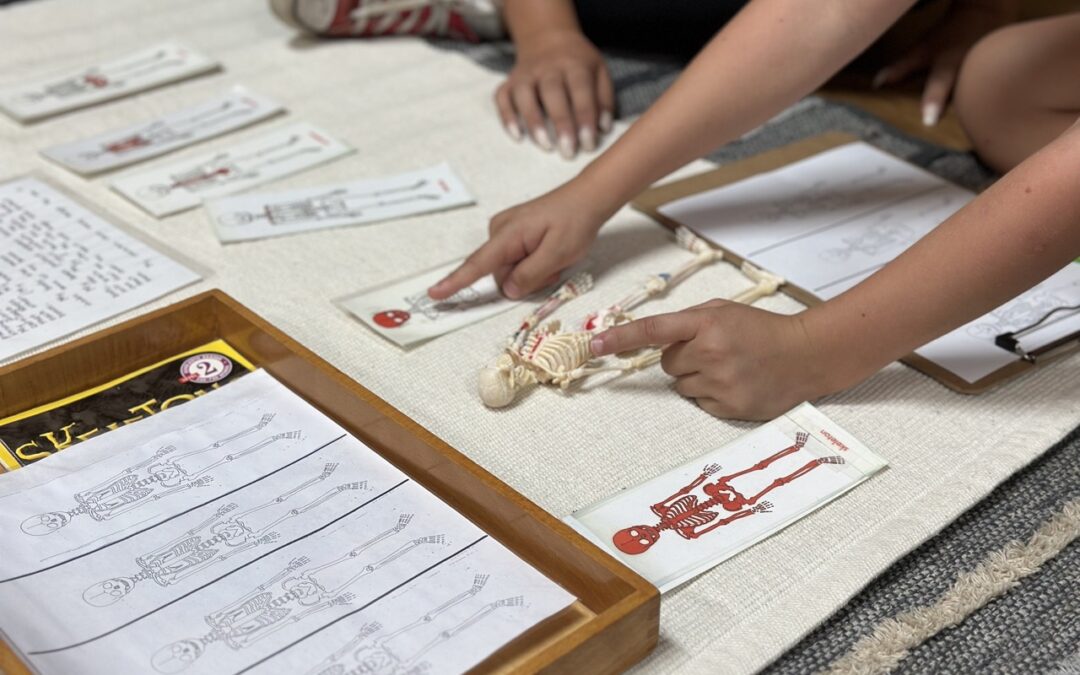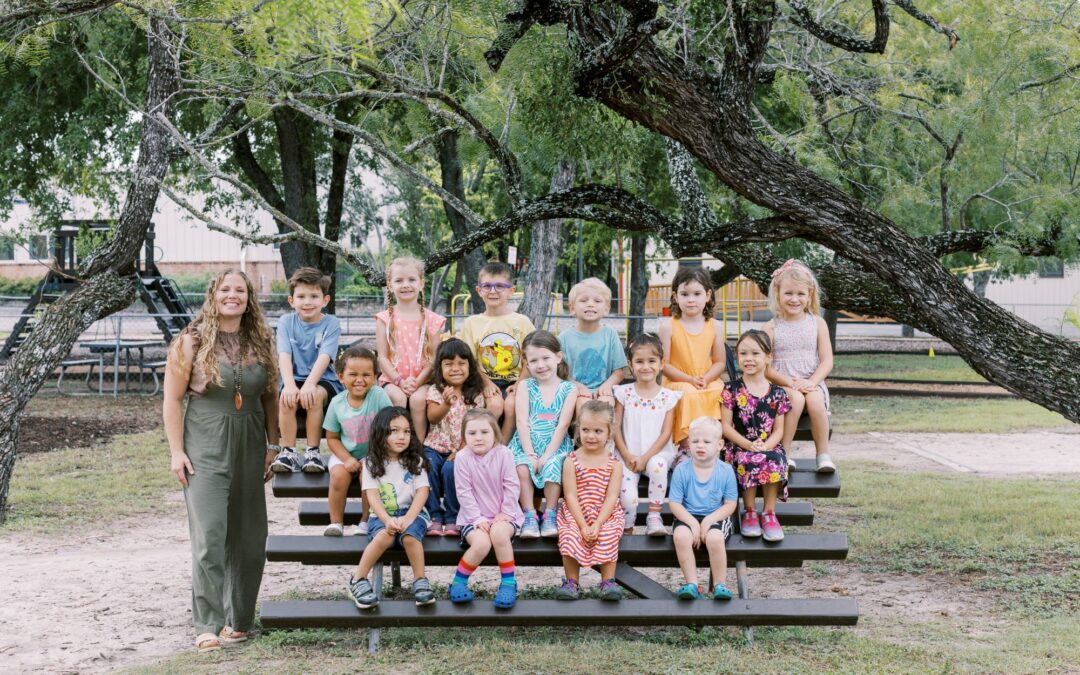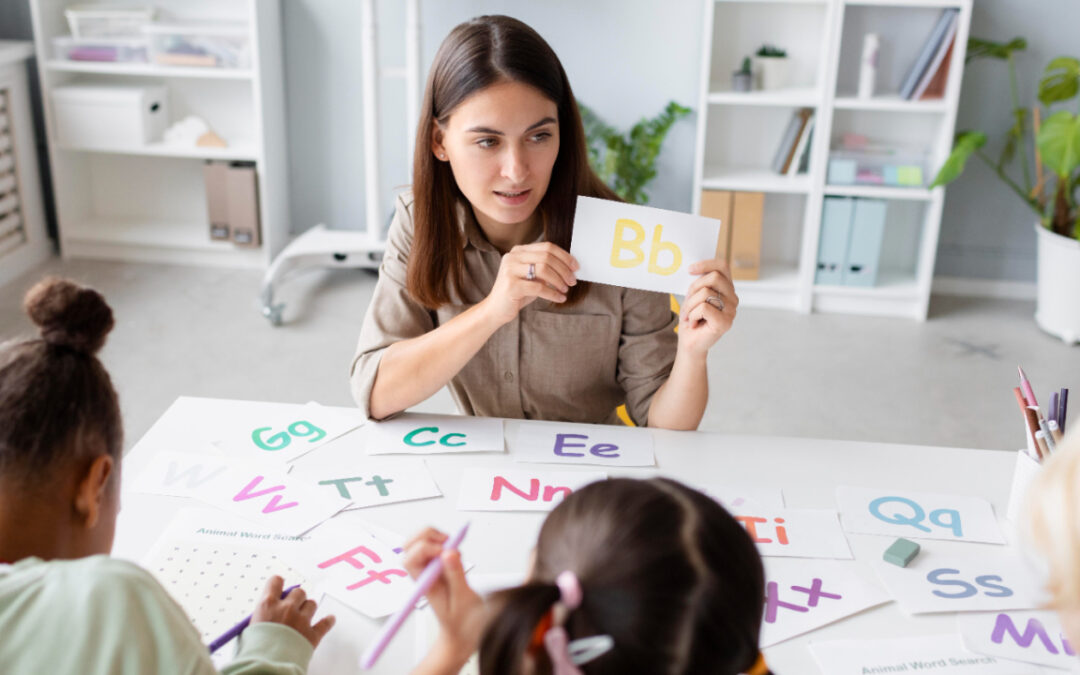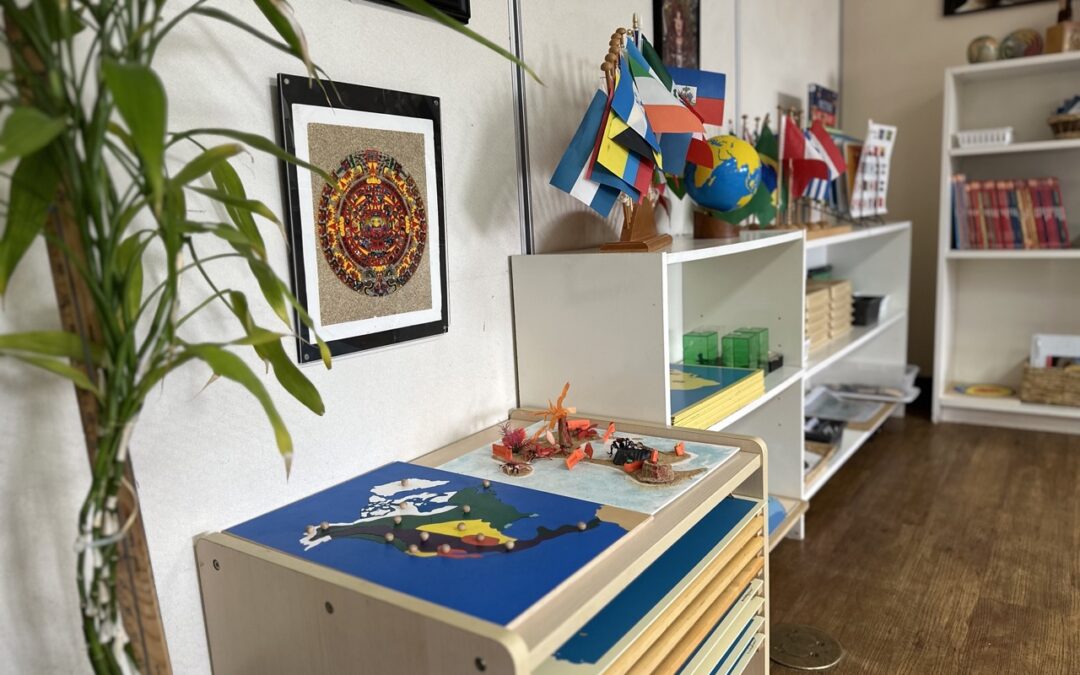Curious about the Montessori approach to early childhood education? Country Day Montessori, along with many other Montessori schools, offers a unique curriculum for children based on the teachings of Maria Montessori. This guide will explore the areas of focus for Montessori learning and some of the goals for our students.
You will notice that our method encourages child exploration and supports infant development. By understanding the Montessori curriculum, you can make informed decisions about your child’s early learning experiences.
What Are the Key Areas of Montessori Learning?
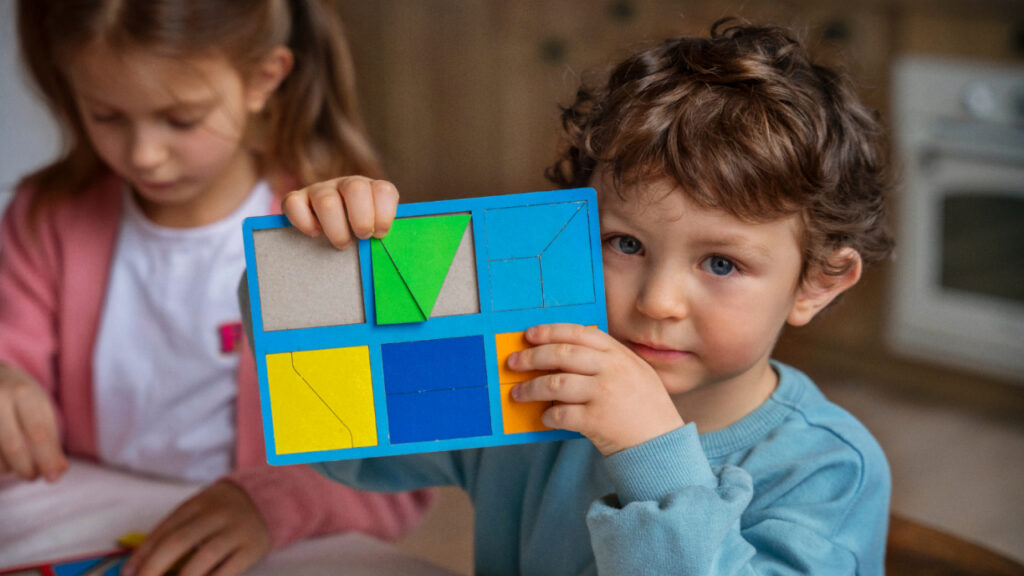
The Montessori curriculum for early childhood education focuses on five key areas: Practical Life, Sensorial, Mathematics, Language, and Cultural Studies. These areas form the foundation of Montessori education, with the goal of fostering eahc child’s curiosity and independence.
1. Practical Life
Practical Life activities in Montessori schools help children develop essential life skills. These tasks, such as pouring, buttoning, and cleaning, enhance fine motor skills and independence. For our primary school program these skills include: putting on your shoes, rolling up a rug, sponging, whisking, caring a bucket, washing your hands, sweeping, and a variety of puzzles. Teachers guide students through these exercises, so that each child can build their own confidence and self-reliance in everyday tasks.
In dual-language Montessori programs, Practical Life activities often incorporate language learning. Students practice vocabulary and communication skills while performing tasks, preparing them for kindergarten and beyond. These hands-on experiences lay the foundation for success in school and daily life.
2. Sensorial
Sensorial activities in Montessori education refine children’s senses and cognitive abilities. These exercises use specially designed materials to help students categorize sensory information, laying the groundwork for advanced concepts in math, language, and art. Key materials and activities include:
- The Pink Tower for visual discrimination
- Rough and smooth boards
- Binomial Cube
- Color boxes for color recognition
- Geometric solids for shape exploration
- Sound cylinders for auditory discrimination
These activities prepare children for more advanced learning in mathematics, language, and geometry
The sensorial area also supports language development. Children learn to describe their sensory experiences, expanding their vocabulary. This approach aligns with the Montessori philosophy of holistic education, fostering a deep understanding of the world through hands-on exploration.
3. Mathematics
Mathematics in Montessori education introduces children to numerical concepts through hands-on materials. The American Montessori Society emphasizes the use of concrete objects to teach abstract ideas, fostering problem-solving skills and creativity. Children learn to count, recognize patterns, and understand basic operations using specially designed manipulatives. For example, instead of abstract counting exercises we use a bead stair or a ten board. These physical objects give the student mass that allows them to easier conceptualize the concepts in basic mathematics.
The math curriculum uses concrete materials to introduce abstract mathematical concepts. Some key materials include:
- Number rods and sandpaper numerals
- The decimal system materials (golden beads)
- Counting exercises with various objects
- Introduction to basic operations (addition, subtraction, multiplication, division)
Montessori math curriculum builds a strong foundation for future learning. Teachers integrate mathematics into daily activities, including yoga sessions that incorporate counting and geometry. This approach helps children develop a natural affinity for numbers and mathematical thinking, preparing them for more advanced concepts in later years.
4. Language
Language development forms a critical part of the Montessori learning environment. Children engage with letters, sounds, and words through hands-on materials, building a strong foundation for reading and writing. This personalized learning approach allows each child to progress at their own pace, fostering critical thinking and social skills.
Language activities include sandpaper letters for letter recognition and phonics, the moveable alphabet for word building, metal insets for handwriting preparation, and three-part cards for vocabulary expansion. Oral language skills are developed through daily social interactions and group activities.
In Montessori childcare settings, language activities extend beyond traditional literacy. Children participate in conversations, storytelling, and language games that enhance vocabulary and communication abilities. This comprehensive approach to language development prepares children for success in future academic and social settings.
5. Cultural Studies
Cultural Studies in Montessori education introduce children to geography, history, and science. This area supports cognitive development by exposing young learners to diverse cultures and natural phenomena. Teachers use maps, globes, and cultural artifacts to spark curiosity about the world, fostering an early appreciation for global diversity.
Cultural Studies (also called Cosmic Education) encompasses geography work with puzzle maps and globes, science through simple experiments and nature studies, history with an introduction to concepts of time and human cultures, and art and music through exploration of various artistic mediums and musical instruments.
In primary Montessori classrooms, Cultural Studies accommodate various learning styles. Children engage in hands-on activities, such as exploring different habitats or learning about historical figures, which enhance their understanding of the world around them. This approach to childhood learning lays a foundation for critical thinking and global awareness.
What Makes Montessori Unique?
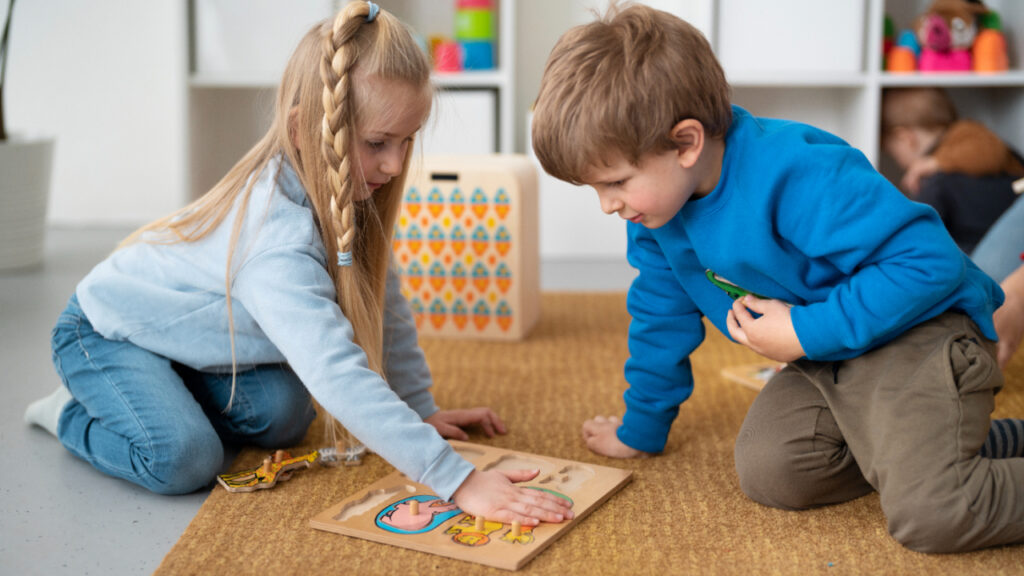
Montessori is unique because of its child-centered approach, which differs from traditional methods in the United States. This method allows children to learn at their own pace, fostering independence and self-directed learning.
The prepared environment is a cornerstone of Montessori classrooms. It consists of six key components: Freedom, Structure and Order, Beauty, Nature and Reality, Social Environment, and Intellectual Environment. This carefully designed space includes specially crafted materials and often incorporates natural elements, promoting hands-on learning and exploration.
Montessori education emphasizes the development of the whole child, similar to the Reggio Emilia approach. It focuses on cognitive, social, emotional, and physical growth, creating a well-rounded learning experience.
Parent involvement is indeed crucial in Montessori education. Schools often encourage parents to understand and support the Montessori method at home, creating a cohesive learning environment that extends beyond the classroom. This involvement can take various forms:
- Attending parent-teacher conferences to discuss the child’s progress
- Volunteering in the classroom
- Participating in parent education workshops
- Joining parent committees
- Creating a Montessori-friendly environment at home
By extending Montessori principles into the home environment, parents can reinforce the concepts and values taught in the classroom, fostering a seamless educational experience for the child.
See the Difference for Yourself – Schedule a Personalized Tour Today!
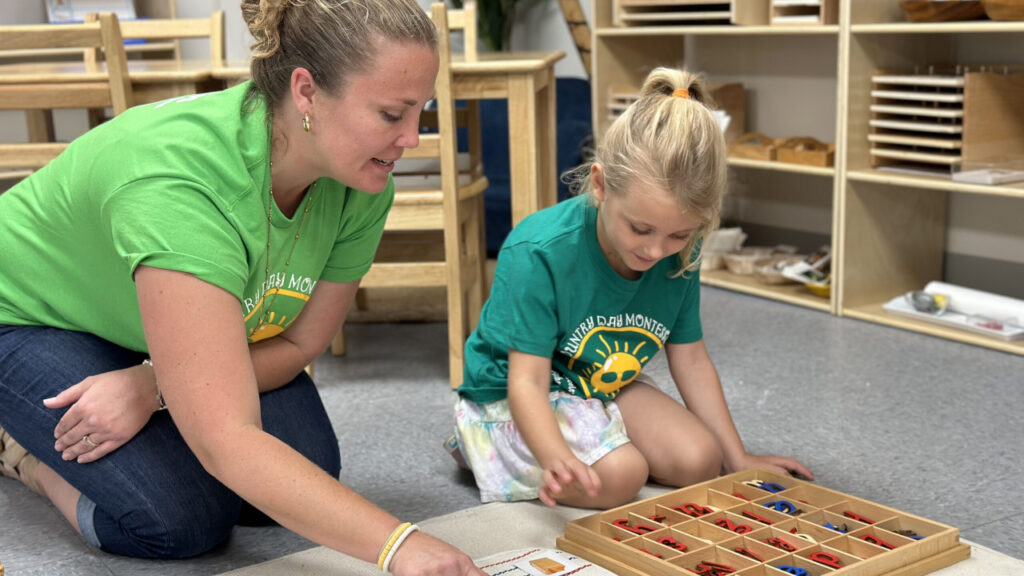
Experience the unique learning environment at Country Day Montessori, where children grow through hands-on learning and independence. Our 4.5-acre campus features barnyard animals, a butterfly greenhouse, and authentic Montessori classrooms for children from infancy to elementary.
With small group instruction and personalized learning plans, we inspire curiosity and a love of learning. Meet our caring teachers and see our classrooms in action at 4194 Jung Rd, San Antonio, TX 78247. Schedule a tour today and discover the Country Day difference!
Frequently Asked Questions
How does Country Day Montessori incorporate nature into its curriculum?
Nature is deeply integrated into the curriculum through the school’s 4.5-acre property, which includes a barnyard with animals, a butterfly greenhouse, and blooming gardens. At Country Day Montessori, these natural elements offer students hands-on learning opportunities, helping them connect with the environment and strengthen their understanding of natural sciences.
What accreditation does Country Day Montessori hold?
The school holds Cognia accreditation, a testament to its commitment to educational excellence. This recognition affirms Country Day Montessori's adherence to rigorous standards and its dedication to continuous improvement in delivering quality Montessori education to students in San Antonio.
What after-school programs are offered at Country Day Montessori?
Country Day Montessori offers diverse after-school programs including sports, art, cooking, dance, and tumbling. The school also provides a chess club to foster critical thinking skills, enriching students' experiences beyond regular school hours.
How has Country Day Montessori expanded since its founding in 1983?
Since its founding in 1983, Country Day Montessori has experienced significant growth. Initially focused on Pre-Primary and Primary age groups, the school expanded to include Lower and Upper Elementary programs in 2003. In 2021, under new ownership, an Infant Program was introduced. To further support its evolving mission, a new building was constructed in 2023, reflecting the school's continued expansion.
